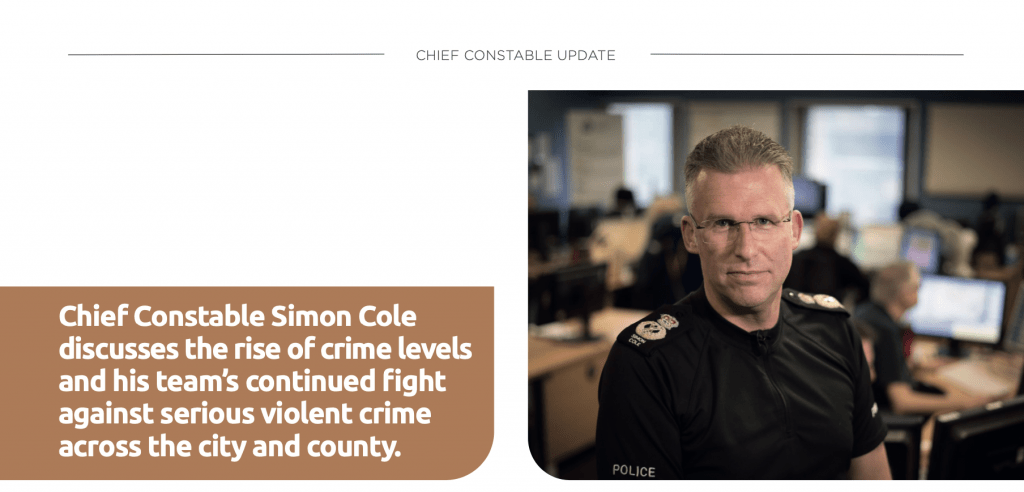
It has been a busy time and as we gradually see restrictions relating to coronavirus being lifted, invariably we as the police are seeing a return to some more familiar challenges. One of those is the ongoing fight against serious violent crime and, in particular, public place violence and knife-related crime. Although this is very much an issue for all police services across the country, it is something that is one of our top priorities here in Leicester, Leicestershire and Rutland.
Violent crime can ruin people’s lives of both the victim and the perpetrators’. It can also cause people and communities to feel unsafe and that is something we absolutely want to tackle. As you would expect as the police, enforcement against those involved in serious violent crime is a key tactic and we will continue to use all the tools at our disposal to gather intelligence, make arrests and help bring people to justice. But something I think is just as important as that, if not more so, is how do we stop the cycle of serious violence in the first place? How do we prevent our young people from being drawn down a pathway which could see their opportunities in life being ruined?
We are fortunate that we have a violence reduction unit in LLR – the Violence Reduction Network. Part of the Office of the Police and Crime Commissioner, it takes a public health approach to tackling violent crime, looking at providing deterrents or diversions away from violence. As part of that approach we have been working very closely in partnership with the VRN on our approach to prevention of violent crime.
We have embarked on what we see as an innovative campaign to try to deter young people away from violent crime, particularly those that might be on the cusp of it and at risk of getting involved.
In the past, we have almost threatened young people with the consequences of violent crime. We want to offer them meaningful help and advice and an alternative pathway to violence. The Make a Stand Against Violence campaign has been created working with young people across our area. It gives them advice about how to avoid getting involved in violence and practical steps they can take to help their mates too.
It has been pushed out across digital and social media channels plus you may have seen it on key bus routes too.
We have also revamped our anti-knife crime campaign #livesnotknives with the new “We Don’t Carry” messaging where we reinforce positive messaging in order to make people think about their actions and what they can do if they are scared that they or their mates may be involved in knife carrying.
As part of this our officers have conducted education sessions with thousands of students from schools across LLR about the issues of knife crime. Again, we want to try to communicate with our young people on a more positive note. It is all too easy to demonise young people and suggest they are a problem when this is far from the truth.
We cannot arrest our way out of this problem – serious violence and knife crime is a lot more complex than that. We need to be having meaningful conversations with young people so we can understand their fears and the pressures they face and offer them genuine alternatives to navigate their way through.
Simon Cole QPM
Chief Constable



